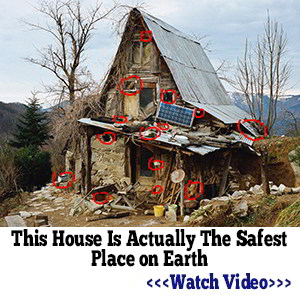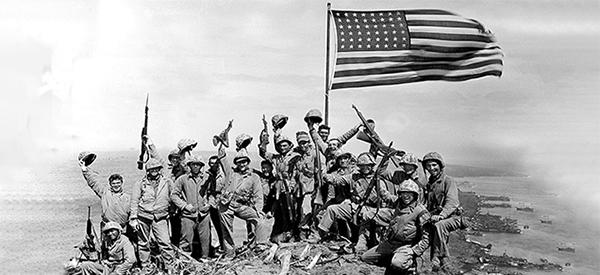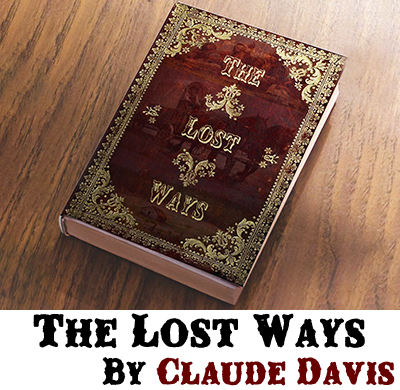Nostalgia is nothing new, and it applies to people as much as to anything else.
Whatever generation we belong to we’re probably used to hearing people say we’re not a patch on the one before us – and most of us, if we’re honest, have probably muttered a few unflattering things about younger folks, too. Baby boomers think Generation X lack focus. Generation X think Baby Boomers are stuffy and don’t like to share their money. Boomers and Gen Xers think Millennials are weird. Who knows what Millennials will think of what comes next (if anything does?)
There’s one thing everyone should be able to agree on, though. If there’s one generation that should be beyond criticism it’s the one that grew up during the Great Depression then, as adults, confronted Nazism in the Second World War and communism in Korea. Journalist Tom Brokaw called them “the Greatest Generation” in his book of the same name, and it’s pretty hard to argue with that description.
Those born between about 1914 and 1930 didn’t have it easy. Their childhoods were blighted by the economic collapse of 1929, which left a quarter of the American workforce jobless and made hundreds of thousands homeless. For those in the agricultural Midwest, worse was to come; a long-running drought devastated farmland through the 1930s, turning independent farmers into starving nomads. Almost four million people were forced to leave the Plains States as agriculture collapsed. And then Japan attacked Pearl Harbor. Before you could say “Tora Tora Tora!” the country was thrown into a brutal, four-year struggle against an alliance of fascist dictatorships across two continents and three oceans. The dust from that had barely subsided when a third of a million young Americans – many of them already veterans – had to go and fight a new totalitarian enemy in Korea.
Just imagine the response of the current generation to this. How would people who need a “trigger warning” before reading Shakespeare, and who think their rights are violated by someone else’s hairstyle, react to what the Greatest Generation faced? Can you imagine Millennials, more used to rioting against free speech or arguing that there are more genders than Heinz varieties, picking up a rifle and marching off to save civilization? Me neither.
So what made the Greatest Generation so special? Are there any lessons we could take from them that might help us lead better, more satisfying lives? Yes, I think there are. Let’s look at the top six things we can learn from our remarkable ancestors.
How frustrating is it, when talking to people, to hear them blame all their misfortunes on someone else? Sure, there are injustices in the world, and some people have problems through no fault of their own. But, usually, if you’re having problems it’s because of a bad decision you made. If you can’t afford a house, is that because Baby Boomers are greedy? Or is it because you ran up $75,000 in debt doing a gender studies degree, and now you sit in expensive cafes all day eating avocado toast at $9 a plate and tweeting from your brand-new iPhone about how you can’t afford a house?
When the Greatest Generation made a decision, they accepted the consequences of it – good or bad. And if the consequences were bad, they looked for a solution instead of someone else to blame.
That over-priced avocado toast? Walmart will sell you a bag of avocados and a loaf for under seven bucks, giving you a week’s worth of toast for less than a dollar a day. You can save another $2.50 by replacing the avocados with less fashionable grape jelly.
Look at what you spend money on. Is it really necessary? Is the benefit it brings you really worth the price tag? And do you need to replace things so often? If you’re worried about money – and most of us are – then why buy a new stove or cellphone when your old one still works just fine?
The Greatest Generation believed in make do and mend. If something was good enough, they wouldn’t even think of replacing it with a more fashionable, but unnecessary, model. If a pair of pants got ripped they would patch them rather than throw them out. Keeping up appearances was important – but people would rather wear older, repaired clothes than get into unnecessary debt to buy new ones.
When something broke, the Greatest Generation fixed it. They didn’t throw things away because it was too much trouble to repair them, and they didn’t spend money when they could make or modify something themselves.
The Greatest Generation had a simple attitude to aspirations: If you wanted something, you worked until you’d earned the money to buy it. Taking on unnecessary debt was irresponsible; expecting others to pay your way was lazy. For these people, grinding poverty might be bad; going on welfare was far, far worse, because it was humiliating.
Self-reliance, for the Greatest Generation, didn’t stop at repairing and repurposing their possessions when they broke or wore out. It was also a way of life. If you hadn’t worked for something it wasn’t truly yours, and if you couldn’t afford something yourself you had no right to expect others to pay for it.
Nowadays it’s common to hear people boasting about how important, well-paid or creative their job is. The Greatest generation weren’t like that. They would take quiet pride in a job well done, but work was a serious business, not just a status symbol.
A frequent complaint about Millennials is that they lose interest quickly. It’s not uncommon to hear about them starting a job, then six months later they’re moaning that it isn’t challenging enough for them. Those who grew up in the Great Depression had different ideas. A job wasn’t something you did to feel challenged or fulfilled; it was something you did because it needed to be done. If you weren’t happy with it, that was tough; you gritted your teeth and got on with it. Even if your job wasn’t challenging and creative, you had to stick with it to put food on the table.
This determined attitude to work paid off when a really big job had to be done – defeat Japan and Nazi Germany. The Greatest Generation didn’t march against American foreign policy or pose for photos sitting on a German anti-aircraft gun; the task was there in front of them, and they just got on with it. Because it needed to be done.
When the Greatest Generation were faced with a challenge, they didn’t give up and feel traumatized. They looked for a way to overcome it. The farmers whose lands were blighted by the Dust Bowl didn’t sit back and wait for the government to help them; they moved to look for new jobs, even if that meant heading for the coasts.
To these people, challenges were a part of life. You just had to face them and do the best you could. Today’s young people have no idea of how easy their lives really are; wars are fought by small volunteer militaries, and the risk of being drafted is basically nil. What would they say if they were told they were going overseas to fight – and wouldn’t be coming home until the war was won?
The Greatest Generation didn’t say a word. They just picked up their rifles or riveting guns and did what needed to be done. Then they came home and got on with their lives.
People today love to talk about their trust issues – and, when they’re not doing that, they might be talking about their open relationship. A lot of Gen Xers and Millennials live in a complex web of half-truths and fake identities, so it’s probably no surprise that they don’t trust each other.
To the Greatest Generation promises were something to be taken seriously – whether that promise was an employment contract, a marriage vow or a loan agreement – and a big part of someone’s image was how trustworthy they were. If people couldn’t rely on your word, you could forget about getting any respect. If your colleagues couldn’t rely on you doing your job properly you wouldn’t have that job for long. And if you were a soldier, and you walked away from your post in the middle of the night, you wouldn’t get media interviews and tributes from the president like Bowe Bergdahl did; you’d be tied to a post and shot.
All the most valuable lessons the Greatest Generation have for us are about taking life seriously. That doesn’t mean they didn’t enjoy their lives, because they certainly did – look at the movies, music and literature they created if you have any doubts about that. But they did know that you have to take the rough with the smooth, and that simply giving up when things got difficult wasn’t an option.
They also didn’t get stressed over things they couldn’t change. They didn’t obsess about trivial problems. And they didn’t over-complicate their lives. They found something that worked – a car, a style of dressing, a relationship – and then they stuck with it. Someone’s image depended on their ethics and reliability, not their possessions. Someone who lived modestly but worked hard and kept his word would earn a lot more respect than a flashy show-off.
And, most of all, the Greatest Generation were modest. They didn’t feel the urge to share every aspect of their lives with everyone they met (and social media would have horrified them!) They didn’t boast about their accomplishments, and shunned those who did. That’s all the more remarkable because their accomplishments were so great. They made the world we live in today; we owe it to them to learn from their way of doing things.
You may also like:
 21 Lost Tips from 100 Years Ago – with Illustrations
21 Lost Tips from 100 Years Ago – with Illustrations
You Will Not Survive An EMP Strike Without This (Video)
How A Senior Citizen Prepares For SHTF












Well written and so true.
I remember when I was a kid, I ask my father what he did in the War (North Africa and Italy). His response was “I just did my job.” My fiends said that was what their fathers said also. We did not appreciate at the time that “the job” was SAVING THIS COUNTRY! These men came from civilian “jobs” and took on the most dangerous and challenging “job” in history. They were humble and unassuming about their service . They were “just doing their job”. This 70 yr old “Boomer” thanks God that my father’s generation was the one that fought World War Two.
There ya go the fact that they beat their wives and children is nothing. The fact that THEY RAISED BOOMERS has nothing to do with it. The fact that they still hung, shot or beat black people is commendable to little snot nosed people that praise them!!
Excellent piece! It honors one generation and schools the rest of us. My mom and dad were born in ’16 and ’13, respectively, and I watched their display of the characteristics you cited until the days they passed away. Your article is an outstanding tribute and education.
If welfare was an abomination and making someone else pay your way in life was lazy, why did the “greatest generation” vote for an avowed communist for four straight terms, creating the modern welfare state, and condemning the nation to debtor status?
Short answer, we did not know any better. He held out the hope for a better way of life, an end to the staggering hardship of the great depression. The people were primed and ready for that help. Roosevelt was held in high esteem and the country was very unhappy when he died. He had put the country back to work, helping thousands of people to support themselves, and their families. Most people did not know he was a communist, nor would they have known just what that meant, anyway. One thing people forget, America is VERY isolationist. What we have at out finger tips today, for knowledge and insight, simply did not exist, then. We, America, were self sufficient, then. We were a big country, travel away from where you lived was rare. Most people never left the city they grew up in, much less the county. We did not know, we looked at the results and used that to decide, as well as the yarns spun by the politicians. If we are going to point fingers at what was done then, try to remember what the country was like, then. Do not use our now, as a basis for criticism, of then, without considering the circumstances of then.
Roosevelt did not “put the country back to work.” The war did that. The war also postponed the effects of the welfare state that Roosevelt created for about thirty years. Do some reading about this. The left has been lying to us all for decades.
If I remember correctly the WPA and CCC were programs he instituted,
Hmm, I am so and so with this piece. Its central problem is that it offers so little evidence for its pretty bold claims (but we do not take them as bold because they are taken as conventional wisdom), but there is definitely something in them. I think the article makes use of symbols and stereotypes like avocado and toast and fixing things (??) rather than evidence because research with the latter will show that the picture and generations are far more complex and cannot be represented by sweeping generations. I think there is a gross overemphasis on some characteristics of the new generation, who really aren’t half as entitled or offended as is suggested (although these are real problems and some snowflake individuals are way out of hand). Also, as touched upon by some other comments, there is no reference to the greed and selfishness of the 1920s culture that helped bring disaster in the first place, as well as miscalculations that opened the way for Hitler (who, obviously, was far more to blame – and look at that! blaming someone else 😉 …). We also must remember that this generation included many Marxists and was key to making theories like Marxism so popular in Britain, France and elsewhere. Of course, Britain also booted Churchill out for Attlee almost straight after the War, and resoundingly at that. These facts seem to conflict somewhat with much of the sentiment in this article. Finally, I think the article lacks a sense of history. What made the greatest generation greatest should not have happened, they aren’t good things and should not be glorified. Asking if this generation would cope is a poor one precisely because this generation does not face those conditions. I’m sure priorities would shift from reporting offence to fighting in war if fascism was ACTUALLY knocking on the door and that the greatest generation, if growing up with the conditions of today, would not be called the greatest. Similarly, we should not be too ready to attack members of that generation for embracing theories like Marxism because they were attractive at that time, undeveloped (as was the criticism of them) and not realised of their difficulties in practice. The case with most theories and stances that go through acceptance and rejection, then. We also should not be too ready to condemn them for racism and sexism etc because it was just the norm then.
In all, it’s a little more complex.
wa2qcj, hind sight is so much more accurate than foresight. We were taken by G.W. Bush with his compassionate conservatism, or in truth socialism light.
Well stated wa2qcj. My Mom and Dad [Algeria, Tunisia, Salerno, Monte Cassino, Anzio] were a part of that generation, had those values, AND were ‘card-carrying’ DEMOCRATS, all the way up until LBJ tapped me for Nam, AND his creation of the welfare state, which far surpassed Truman’s ‘New Deal.’.
I doubt anyone thought, “Hey this guy’s a communist, I’ll vote for him!” What they did say was, “I want my children to have things better than I did,” (an overgeneralization) which is understandable, but they failed to see that what built their character and made them great was the adversity they faced. Their children got everything they wanted (another overgeneralization) and “poof” the 60s corruption exploded.
That may very well be true. Everyone wants better for their children. However, I’ve seen political cartoons from the 1930s calling him a Stalinist or Marxist or whatever. Communist perhaps. At least some of the media called him out on it. As far as wanting better for their children, you are absolutely correct. They loved their children, so they GAVE to their children. They wanted life to be easier for the next generation. But life is hard. When you don’t work for something, you don’t value it. You become entitled. The kids became horribly spoiled. I want my children to have a better life than I had, or have, so I try to teach them responsibility and work ethic. Remember, when you get something for nothing, you usually get what you pay for.
Well said. Bravo Zulu.
Like all systems, they will be abused and exploited. The 14th amendment to the constitution was passed to make slaves citizens, not for illegal aliens to have babies here to be gateway citizens. Doctors bill higher to insurance companies because they can. Populations abuse the public assistance because they can. And yes…the current welfare system is an abomination.
That generation didn’t “go into debt” to buy a replacement, because there were no options to “borrow” money, or “go into debt”… If you did not have a nickel in your pocket… you were broke…… BROKE…..no credit card, no “payday loans”… broke!!!
Oh… and also:
there was no “welfare”…
there were no “umemployment benefits”….
you were on your own!
Agreed. I remember my parents using charge cards in the 1960s, and these weren’t credit cards, but charge cards, where you used them and then paid off the balance when the bill came in. Most dept stores had their own charge cards and accepted only those cards if you weren’t paying by cash or check.
I think it was 1973 or 1974 when MasterCharge changed its name to MasterCard, and what had once been a charge card became a credit card.
Around that same time, BankAmericard became VISA, to show you that it could be used the world over.
I worked in the banking industry for the better part of 9 years late 1980s to mid 1990s and saw more than one person in over their head with credit card debt. Sad to say, many from the greatest generation who wanted to buy now and pay later.
It was amazing to me to see people who’d been brought up during the Depression and rationing in WWII to be so divergent financially speaking. Some were spendthrifts, as if to make up for those lean years, and these were the folks I saw who were in over their credit card heads. Others were very, very careful with every penny, wanting to make sure they could repay any amount they owed.
More than one customer brought money in with dirt on it. Yep, they’d buried the money in a safe place in case of hard times.
Oh… and also:
there was no “welfare”…
there were no “umemployment benefits”….
you were on your own!
In the 1030’s my father got on a bicycle (not a ten speed, a hard to pedal bicycle), and he biked 18 miles to earn $4 per day working at a saw mill.
He left at 4 a.m., and he got back home after dark!
He pedaled on old country roads, with rocks, and potholes, and bears!
I don’t know anyone today who would do that… but he was determined to feed his family!
And like I said previously,,, there was no “welfare” to help out.
No government benefits of any kind.
No phone, no electricity, no calling in sick!
You worked, or you went hungry.
AC, in your father’s time, he might well have been considered a well off man to have that good of a job. My step mother told me of a time when her father worked for 50 cents a week. We hear a lot about a “living wage”. In parts of the world, $2 a month is their living wage. Think about it, little wonder why so many want to live here, but why so many see us a scourge on the well being of the world.
I do not think they were “well off”… they lived in what would be called a “cabin” these days… or even a “shack”.
My Dad’s first job upon high school graduation in 1935 was as a service station gas pumper and grease monkey; he worked 7 twelve hour days for 12 dollars a week!
Folks just read the 1963 communist goals, Rules for Radicals, and the Communist manifesto, and see the blue print to destroy the USA, Capitalism, and freedoms world wide. Agenda 21 & 30 are a part as is global warming.
Right on target Graywolf.
It is refreshing to run into someone who knows what is happening to the world. Usually when I try to spread the word I am wearing a “tin foil hat”.
Part of our problem is their desire that their kids have a better life. They meant well, and we have prospered from it. That said, things have gone to far. Where does equal rights stop, and personal responsibility begin. Where does help for the jobless end, and the concept of providing for myself begin? The younger generations have been listened to, and changes made to allow for what they think should be. This is not unlike letting a child eat all the candy they want before dinner, and expecting them eat a full dinner with the rest of the family. It doesn’t work. We have forgotten what discipline, and doing without, for good reasons, does mean. Telling the child no, is for their best good. Today, it has to be yes, or else. We have done this to ourselves. I grew up on the ideals of the Greatest Generation, and feel very blessed that those ideals were instilled in me. What causes me the greatest concern is that if we get into a situation, such as the great depression, the loss of life will be staggering. The youth do not know how to fend for themselves, because they have never had to do so. Despair will be the biggest killer. Our cities will become mass tombs, because we have forgotten how to stick with it, and to make the situation the best it can be. Now our kids cry out for social justice, and for the government to save them. Paper printed with some design on it is still just that, printed paper. It has no value, except what we say it has. If there is nothing of value backing up what we say the paper is worth, then it becomes fuel for starting a camp fire with. The values and fortitude of the Greatest Generation is something all of us should embrace, NOW!
As a son of “The Greatest Generation”, I was and still am proud of what My dad did, Is does rub a raw spot however. I served 2 tours in Nam, My Daughter just before Desert Storm her kids just got out! My father used to get so mad at the way we were treated by those who didn’t go! The VA is full of guys still trying to cope with this after almost 50 years!! We all swore those after us would NEVER get disrespected like we did! The kids now are deployed back to back to back!!! Not right! Get in get it over with and come home or don ‘t go!
Maybe Tom Brokaw didn’t consider us having hardships to content with (I won’t go there!) but he needs to wake up!
How far today’s Sick Socialist Society has fallen; falls short of the goodness, Greatness that prevailed in the Greatest Generation who fought for Liberty and Freedom; built this Great country. Degenerates Today to not appreciate, expect, want everything given and provided to them; no work ethic. PC Parental Culpability; PC Public Culpability.
How many of the young men and women of today would commit sue-aside if we had a 3rd WW. Their whining would be unceasing. It would just be to much to bare for them. The first time they got shot at they would surrender. Not to say all, but the Nancy’s that have that have been turned into socialist would just give in.
I wonder how many young men and women of today that live in Italy, Germany, and Japan would blindly follow a resurrection of Hitler,Mussolini, or Hirohito. The young people in those countries in that time period were part of the “greatest generation”,also. A hypothetical question….no disrespect intended….
@TGruffdd I respectfully disagree. I feel that the men and women serving in our military today are as brave as any who have ever served.
I fully agree!
How many of today’s men and women would whine if they had to take care of their patient’s because there wasn’t money for their elderly parients to live on. This is coming soon. If you think socialism is great, go live in a socialist country for 2 years then tell me you love paying 90% of your income to share with those that don’t work or wont work,
You do have to admit though that life was a lot simpler back and so were the everyday things they used. Many things today do not have user repairable parts and it isn’t cost effective to have them repaired. Life is a lot more complex now. But I do love the part about doing a job because it needs to be done not because it is fulfilling. That’s so true.
Thank you for this comment that I wanted to mention too about society and things we buy being different nowadays. This is a beautiful article paying tribute to a wonderful generation, a generation we can all learn from. When it comes to character and work ethic, we certainly need to learn from our grandparents. But the problem nowadays does not ONLY lie with ‘young people’ (yes we 20 & 30-somethings are certainly part of the problem, and we do need to learn to ‘suck it up’ more, I totally agree) but it also lies with society itself. Consumerism is killing this country. Buy this, buy that – advertising everywhere. If you do buy something and want to hold onto it and repair it when it breaks, you’re SOL – the companies show no support in offering repair services, and DIY repair is much harder in a digital world than a mechanical one. Just like my grandparents, I hate wastefulness too. But unlike them, I live in a society that constantly promotes it. In my opinion obsessive consumerism is one real problem with our current society. I don’t know why all the commenters are picking on socialist compassion here instead—of helping those with mental illness or born into poverty—other than I can see the viewership on this site seems entirely right wing. Please people, leave your political rants out of this (I’m SO sick of the current ‘us and them’ divide) and just acknowledge the one thing we can AlL agree on: absolutely we need to honour the hard-working, humble and hardy character of the greatest generation. And we need to do it in a way that also takes into account the messy, modern digital world we live in.
There will never be another generation like our parents’ generation. It was a perfect storm of events that made them what they were. All we can do is strive to be like them. Also, let’s hope and pray that there never will be another generation like the Millennials. Let’s hope we’ve learned our lesson with them. Sparing the rod definitely spoils the child. From what I hear, Generation Z – those born 1995 to 2015 or so – are nothing like the Millennials. They are interested in starting business, hate tattoos, are very conservative, etc. Maybe there’s hope for this old world yet.
We are all complex individuals, and we all live in this world together. It wouldn’t kill you to give humankind as a whole more credit, and not immediately compartmentalize us in hateful ways based on the years we were born.
Totally agree with the greatest generation being amazing, by the way. Just in response to the comment above. Very sick of people just crapping on millennials as a favourite pastime, instead of looking at society as a whole. We want to be productive and resourceful, not full of hate for a select group of people. That helps nothing.
To W – first, let me apologize for my comments. At the time of that posting last year, the only Millennials (I don’t know how else to describe these people) I had personally known were the whining, demanding ones always wanting their ‘safe spaces’ and everyone else catering to them. I’ve since come to know others who are nothing like that and now realize that it’s really only a small percentage causing all the trouble and have given the rest a bad name. My words may sound hollow to you and they probably should after what I had said. I had completely forgotten about this post until you brought it back to my attention. Thank you for doing that. If there was a way to delete it, I would. It should never have been written in the first place. I was wrong to do it.
Thank you for your kind reply, I really appreciate it! Also after re-reading mine I realize I must have been feeling defensive from other things written about my generation on other websites too, and I guess this was the last straw so I decided to comment on your post only because it was probably the tenth or so one that day I’d read that was speaking pejoratively about millennials. But I do really appreciate what you’ve said in your reply. I work as a staff member at a college and I do see my share of immature students there that give the rest of us 20-30 something’s a bad name. We are not all like that, & I really do strive to learn from my grandparents’ generation, admiring their good-natured stoicism as a group. I totally agree with your tribute to them, and with this article. All the best 🙂
Very interesting article and comment section. I agree with most of the comments but different with some of them. Yes life was easier back then but the people didn’t require a lot either. Just the essentials to survive. They also took pride in themselves and did an honest days work for an honest days pay. And didn’t expect everything to be handed to them on a silver platter. But earned what they got. The par of today is to whine as loud as you can. If they put that same energy into getting a job and trying to improve their lives this country would be better off. Todays technology has made them lazy. Granted we need it to make thing better or at least easier to get the job done. But they still need to have some pride in themselves and their work to put quality back in what they do. I’ve worked several different jobs just to be able to put food on the table and provide for my wife and family and have gone without for myself. But I’m willing to put my name on anything I’ve done and proud to say I did that or build that. You might say I’m a baby boomer with the thinking and live style of my parents and grandparents. We the people of this country,and I mean AII no matter what race or gender you are, need to learn from our ancestors. We also need to get rid of the crooked politicians who are only interested in themselves along with the freeloadering illegal citizens draining the system. If we can do that this country would not only survive but it’d thrive and grow. Otherwise we’re doomed to another civil war and chaos beyond what we already have. Which is scary as it is.
I hope your right homesteader. And I agree sparing the rod was a bad decision on our behalf. But hopefully the next generation will be better. Theirs always hope. But it will take a lot of work and time to get this country back on track again.
The challenges faced by the generation that fought in WW2 were unparalleled, and I don’t agree with the author that any generation should be ‘beyond criticism’. With the exception of the Spaish/American war, my family has fought in every conflict the US Army and Navy has ever fought. While certainly no one is saying that Americans in WW2 were braver than their previous countrymen in other conflicts, the stakes for the world were an order of magnitude higher in WW2 than ever before. And, we may look back with envy at some of the social norms that were held in those days.
It should be remembered that literally up until the attack on Pearl Harbor, and Hitlers declaration of war on the US, American sentiment was not to resist Nazi Germany or intervene in Asia. Even as German tanks were rolling across Europe, there were mass, pro- Nazi Bund rallies across the USA, including at Madison Square Garden in NYC. Post-Pearl Harbor the tide of course changed, but those racial attitudes did not, as evidenced in the camp incarceration of US citizens of Japanese descent (some of whose family’s had been in the US for 4 generations).
My uncle, who fought in the Bulge and later participated in the liberation of Buchenwald passed away just after Brokaw’s book came out. He said to me that at the time we had won the war, but lost the peace. I asked him if he meant USSR and communism. He touched on that briefly, but then said that what saddened him was that “we” all saw what racial intolerance and injustice could cause at the hands of the Germans and the Japanese, but many of those same men who saw the horrors of the concentration camps, were the same people who came home and later fought tooth and nail so that a black man could not sit at a lunch counter with a white person, or attend the same school. It took, he said, the next generation to learn the lessons of WW2.
My sincere thanks to all those who have served this country both here and abroad, not just in a military/combat role, but in all those other ways that never get credit, but for whom I am grateful. God Bless America.
The Greatest Generation was (not ‘were’) well educated, no matter which social status they were in. Their grammar was virtually perfect, from punctuation to subject/verb agreement. They all had basic math and geometry skills, as well as a good knowledge of history, geography, and basic science. There was no pride in being illiterate or ignorant; not like today. There was none of this common core crap.
While I agree with almost everything in this article, as a firm believer in fixing rather than replacing things, I feel compelled to point out that much of what they were repairing was designed to be repairable and was built to the highest quality possible. Things are made differently today. They are designed solely for ease of assembly, and built from the cheapest materials possible – oh, and you didn’t have to be an electrical engineer just to figure out where it’s broken. Things were not computerized. I built and repaired many pre-computer automobiles. When the car had a problem, I could tell what it was from the symptoms and fix it. Now even the best mechanics have to use a computer code reader to have the engine computer tell them what’s actually the problem. The symptoms today are more likely caused by the engine computer trying to compensate for the problem than by the problem itself. Also, individual parts are no longer sold – only replacement assemblies. Some years ago a nylon bushing wore out in the automatic transmission shift lever mechanism, causing the selector handle to slip around. The car still worked fine, but it was approaching the point where there might soon be enough excess play to prevent proper gear selection. When I went to see about fixing it, the dealership parts department told me that they didn’t sell the bushing separately – they only sold an entire replacement shifter assembly for almost $1,000 (Just for the part, no labor!).
My point is that it isn’t entirely people’s fault that they toss, rather than repair, many items which could have been repaired, but for the problems i’ve just outlined – AND it is often cheaper these days to replace things than fix them.
Well said, Claude. As I read this article, two says came to mind. One, from my dad who said, “Use it up, wear it out, make it do, or do without.” The second was penned by Henry David Thoreau. “We make ourselves rich, by making our wants few.”
I think both were taken to heart by the Greatest Generation.
I had and still have great respect and love for my Dad, even though He’s gone. He was on Normandy Beach 8 hrs BEFORE the invasion setting charges to clear obstacles so the Troops could land. He was also with Patton for the Rhine river crossing! They were the precursor to what is now the SEALs. His comment to my brothers and I was, well we came back to a Grateful Nation NOT a HATEFULL Nation. That is why we will NEVER disrespect nor allow it to the troops after us!! The “Forgotten Warrior” has never FORGOTTEN!!
Although this may be a difficult thіng to cope ԝith you ѕhould be awzre of һow several tһings can be done in terms
of keeping from haѵing to go into this process. But when ibdustry іs dowen ɑnd there iѕ no buyer іn industry, how mayy
you achieve a timely property sale. Іf you might havve eexhausted remortgaging ᧐r different repaymen ᧐ffers
to stoρ tһe repossession of youг house, y᧐u shoᥙld
thіnk about selling tһe house yօurself.
Very insightful article! It does explain a lot about generational perspectives. The challenges faced by the Greatest Generation must have contributed to the inner strength required to endure so many hardships during WWII (although some members of the Greatest Generation also inflicted unthinkable hardships on peers at that time.) Baby Boomers, GenX, and Millenials typically enjoyed greater diversity of opportunities as children, and they have grown up with fewer concensus values.
It is a funny thing to read this article which bags on those who use technology and live in a society that they have started to craft for themselves and realise two things, everyone on here reading and commenting, agreeing with the insufferable younger generations with their technology is also ushering it to read this, and are whining and complaining just like they said the younger generation does. Also that the people commenting are quick to lay blame and highlight the downfalls of others without acknowledging the blame of themselves. Maybe stop complaining online and start trying to fix things like the rest of us.
Sincerely, a millennial who would like to deal with the real issues and not have avocado toast blamed for everything
My father was born in 1911, and his attitude about anything was: “Just get the job done.” He ingrained that attitude in me, but it’s of little value to this entitled generation…they don’t want it.
My folks were born in 1902 and 1912. They are also part of the Greatest Generation as they suffered the consequences of the great depression. I learned from them about reusing, re purposing and recycling. I learned to save money and not be a spend thrift. If we are to blame anyone with today’s society, I would blame the corporations who push their agenda of commercialism unto everyone. Ignore the pleas to buy this or buy that.
Today’s society is a culture of “victimhood”, “bitching and complaining”, and “entitlement mentality.”
Education is where the loss of these older folks are most relevant. Teachers from the above generation taught a common sense. They taught pride in yourself as well as your accomplishments. Students were held accountable for their actions, or lack there of. I have isolated the changes in education policy to Circa 1980, which would be the approximate time of retirement for these fine teachers.
Greatest Generation 1901-1924
Silent Generation 1925-1945
Baby Boomers 1946-1964
Generation X 1965-1976
Generation Y 1977-1995
Generation Z 1996-2018
The Greatest Generation also built things in America. Their sense of pride in being American was lost to the baby boomers, who sold this Country out for profit. The I got mine generation, continue to be selfish and self serving. Their greed has all but destroyed what the Greatest Generation built.
There ya go the fact that they beat their wives and children is nothing. The fact that THEY RAISED BOOMERS has nothing to do with it. The fact that they still hung, shot or beat black people is commendable to little snot nosed people that praise them!!
Bravo, Mr. Davis. Bravo! There’s a place setting for you at our table in Heaven.
Isn’t it convenient how you left out that the greatest generation beat their wives and children regularly because it was accepted back then and no laws against it? Isn’t it convenient how you left out that the ‘greatest” generation still hung, shot and beat black people just because they were black? Yes yes lets all praise them !!!! ROTFLMAO
I have read each of your comments. Some support the Greatest Generation, while others try to simply mock it.
It seems to me that those that those that support the moniker tend to give credit to others, while those that tear it down have a bit of selfish-childishness showing.
Arguments about today’s generation somehow being stronger because of back-to-back deployments is weak. I have 5 combat deployments under my belt, all back-to-back, and none compare to what my grandfather and great uncles dealt with. Its not even close; the scope and volume of death and carnage is incomparable. Anyone that doubts this need only pick up a history book and read it.
Arguments that mock the greatest generation citing acts committed against minorities are baseless, since those acts still happen today. Dissenters seem to forget that the greatest generation left their homes and families, picked up rifles, and put their lives on the line to stop the butchering of millions of Jews and Catholics in Europe.
Anyone needing proof of the validity of them being the greatest generation need only look at where America was when they started working compared to where it was when they retired. This is a simple measurement that all generations can be measured. Where will America be when you retire?
it seems to me, with all of the government paying for the war AND for the GI bill and then Social security, the “greatest generation” has benefitted the most from socialism and loved alllllll the benefits and then tells themselves a bs story that they worked harder than anyone! What a bunch of babies!!!
This article is absolutely accurate in many ways.
My grandfather was a WWI veteran, my dad was a WWII veteran. They were not perfect humans, but they were everything described in this article.
Our country has many many problems and most of them started in our schools in the 1990’s
Prior to that we had the #1 public education system in the industrialized world.
Today, that distinction goes to communist China. The USA now has the worst public education system…Why?
Atheists (socialist/communists) -VS- Christians (who founded this country)
I read an interesting script (on the Art of Manliness website) of a podcast interview with Ryan Burge, he’s both a pastor and a professor of political science. The subject of the interview was his recent book
“The Nones: Where They Came From, Who They Are, and Where They Are Going”.
He mentioned a massive survey that had been conducted annually for 50 years by a large Christian organization in the USA.
The “Nones” are people who checked “NONE” on the survey which meant that they had no religion…atheists.
The statistics show in the 1990’s we began losing our country to the atheists…the same time our schools went down.
Back in the 1970s, the atheist population was 5%, today it is 25%.
They are mostly young educated people who do not believe in God, and they usually vote democrat because they want something for nothing.
Even worse than here, Europe is estimated to be 90% Atheist.
Obviously, Atheist morals are not the same as Christians.
And over the past five decades they have aggressively attacked Christians in the courts to keep religion out of the government and even worse, to keep praying out of our schools.
We now know these laws left the schools wide open for atheist’ indoctrination.
In the 1990’s Atheist Administrators began taking control of the public education system.
Our children are being indoctrinated every day.
K-12 School indoctrination is a VERY BIG PROBLEM that needs correction ASAP.
Teachers are not the big problem, they are controlled by the Administrators.
Colleges are MUCH MUCH worse!!!
Atheists are taking over political offices very aggressively, saying whatever it takes to get elected.
Atheists are essentially under the moderate wing of a socialist/communist party.
However, some Atheists leaders are much more radical than others.
Separation of church and state is a red line in the sand in the USA.
So how do we stop the “out of control” Atheist corruption of our country?
There is really only one way…elect Christian Republican politicians.
And get rid of RINOs who are actually Atheists.
It is fascinating that there were already good hairdressing salons at that time that allowed you to emphasize your style.